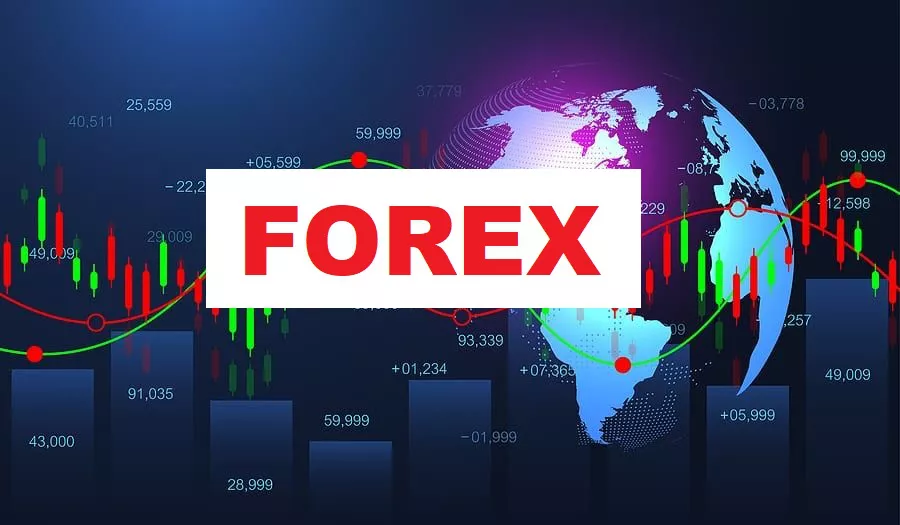In the financial landscape, decentralized finance (DeFi) has emerged as a revolutionary force, promising to reshape traditional financial systems through blockchain technology. The DeFi market has seen significant growth in recent years, attracting investors who are eager to capitalize on the innovative financial products and services it offers. However, navigating the complex world of DeFi stocks can be challenging for even the most seasoned investors. This article aims to provide a detailed guide on where to invest in DeFi stocks, offering insights into the market trends, key players, and potential opportunities for investors.
Understanding DeFi
Before diving into where to invest in DeFi stocks, it’s crucial to understand what DeFi entails. DeFi leverages blockchain technology to create financial applications and services that are decentralized, transparent, and accessible to anyone with an internet connection. Unlike traditional financial systems, DeFi does not rely on intermediaries such as banks or brokers, allowing users to interact directly with one another through smart contracts.
The DeFi ecosystem offers a wide range of financial products and services, including lending, borrowing, trading, insurance, and asset management. These services are typically powered by decentralized applications (dApps) that run on blockchain networks such as Ethereum, Binance Smart Chain, and Solana.
Market Trends and Growth
The DeFi market has experienced significant growth in recent years, with the overall market capitalization surging from 70.5billionto132.4 billion, as noted in recent data. This represents an average token growth of 87%, far outpacing the traditional crypto market’s average growth of 67%. This robust performance reflects the resilience and innovation of the DeFi market, which is attracting increasing interest from investors.
One of the key indicators of DeFi’s growth is the total value locked (TVL) in DeFi protocols. As of December 6, 2024, the TVL in multi-chain DeFi has reached 134.6billion,upover5984.6 billion in August 2024. While this figure still lags behind the historical peak of $186.8 billion in December 2021, the current growth trend is undeniably injecting vitality into the market.
This growth can be attributed to several factors, including the increasing adoption of wrapped assets on Ethereum and Bitcoin, as well as the boost in confidence brought about by emerging regulatory policies. Additionally, the lending market within DeFi has also performed exceptionally well, with the outstanding debt value on Ethereum’s major lending protocols rising to $18.8 billion, nearing the 2021 highs. This reflects a rising demand for leverage among investors, further stimulating the prosperity of the DeFi ecosystem.
Key Players in the DeFi Market
To invest successfully in DeFi stocks, it’s important to identify the key players in the market. Here are some of the notable DeFi projects and protocols that investors should consider:
1. Uniswap
Uniswap is a decentralized exchange (DEX) that allows users to swap tokens on the Ethereum blockchain without the need for a centralized intermediary. The protocol utilizes an automated market maker (AMM) model to facilitate trading. Uniswap’s native token, UNI, has seen significant growth, with its price soaring from 6.50to16.20, making it a focus for investors.
2. Aave
Aave is a decentralized lending protocol that allows users to borrow and lend cryptocurrencies in a peer-to-peer fashion. The protocol offers a range of borrowing options, including variable and fixed-rate loans. Aave’s native token, AAVE, has also performed well, with its price increasing by over 83% in the past three months, consolidating its position as a leading player in the lending space.
3. Chainlink
Chainlink is a decentralized oracle network that provides real-world data to smart contracts on blockchain networks. The protocol enables smart contracts to interact with off-chain data sources, thereby expanding their capabilities and use cases. Chainlink’s native token, LINK, has shown strong market performance, becoming one of the top-performing DeFi tokens.
4. Stablecoins
Stablecoins are cryptocurrencies that are designed to maintain a stable value relative to a traditional asset, such as the U.S. dollar. They play a crucial role in the DeFi ecosystem by providing liquidity and reducing volatility. The total market capitalization of stablecoins has reached $196.8 billion, indicating the increasing liquidity in the DeFi space. Notable stablecoins include USD Coin (USDC), Tether (USDT), and Dai (DAI).
Investment Opportunities in DeFi Stocks
With the DeFi market experiencing robust growth and innovation, investors have several opportunities to capitalize on this trend. Here are some potential investment avenues:
1. Investing in DeFi Tokens
One of the most direct ways to invest in DeFi is by purchasing tokens of DeFi protocols. These tokens often grant holders governance rights, access to protocol features, or a share of the protocol’s fees. Investing in DeFi tokens can offer high potential returns, but it also comes with significant volatility and risk.
When investing in DeFi tokens, it’s important to conduct thorough research on the protocol’s fundamentals, team, and roadmap. Investors should also consider the token’s utility and demand within the DeFi ecosystem.
2. Investing in DeFi-Related Cryptocurrencies
In addition to DeFi tokens, investors can also consider investing in cryptocurrencies that are closely related to the DeFi space. For example, Ethereum is the primary blockchain network for many DeFi protocols, and its price performance can often reflect the overall sentiment towards DeFi.
Other cryptocurrencies, such as Bitcoin and Solana, also have significant exposure to DeFi through wrapped assets and DeFi applications built on their networks. By investing in these cryptocurrencies, investors can gain indirect exposure to the DeFi market.
3. Investing in DeFi-Focused Companies
Another way to invest in DeFi is by purchasing stocks of companies that are actively involved in the DeFi space. These companies may offer DeFi-related products and services, such as wallet solutions, trading platforms, or lending services.
When investing in DeFi-focused companies, investors should consider the company’s business model, revenue streams, and competitive landscape. They should also assess the company’s regulatory compliance and potential exposure to legal risks.
4. Investing in DeFi ETFs
Exchange-traded funds (ETFs) that focus on DeFi and blockchain-related assets have also emerged as a popular investment option. These ETFs provide investors with diversified exposure to the DeFi market without the need to pick individual tokens or stocks.
By investing in DeFi ETFs, investors can benefit from the growth of the overall DeFi market while mitigating some of the risks associated with individual investments. However, investors should still be mindful of the ETF’s fees, management team, and investment strategy.
Potential Risks and Considerations
While the DeFi market offers exciting investment opportunities, it also comes with several risks and considerations that investors should be aware of:
1. Regulatory Risk
The DeFi market operates in a largely unregulated environment, which can expose investors to significant legal and regulatory risks. As regulators around the world continue to grapple with the challenges posed by DeFi, investors should be prepared for potential changes in regulatory frameworks that could impact their investments.
2. Smart Contract Risk
DeFi protocols rely heavily on smart contracts to facilitate transactions and automate processes. However, smart contracts are susceptible to errors and vulnerabilities that could be exploited by malicious actors. This could lead to financial losses for investors who hold tokens or use protocols with flawed smart contracts.
3. Market Volatility
The DeFi market is highly volatile, with prices of tokens and cryptocurrencies frequently fluctuating by large percentages. This volatility can make it difficult for investors to predict the future performance of their investments, and it can lead to significant losses during market downturns.
4. Competition and Technological Risk
The DeFi market is rapidly evolving, with new protocols and products being launched regularly. This competition can make it difficult for existing protocols to maintain their market share and attract new users. Additionally, technological advancements could render existing DeFi solutions obsolete, making it important for investors to stay informed about the latest trends and developments in the space.
Conclusion
Investing in DeFi stocks can offer exciting opportunities for investors to capitalize on the growth and innovation of the decentralized finance market. However, it also comes with significant risks and challenges that must be carefully considered. By understanding the key players in the market, researching potential investment opportunities, and being mindful of the risks involved, investors can make informed decisions about where to invest in DeFi stocks.
As the DeFi market continues to evolve and mature, investors should stay updated on the latest trends and developments in the space. This includes following news about new protocols, regulatory changes, and technological advancements that could impact the market. By staying informed and adapting to changes in the market, investors can position themselves to capitalize on the growing opportunities in DeFi.
In conclusion, investing in DeFi stocks requires a combination of thorough research, risk management, and adaptability. By taking a strategic approach to investing in DeFi, investors can potentially realize significant returns while navigating the complex and rapidly changing.
Related topics:


































